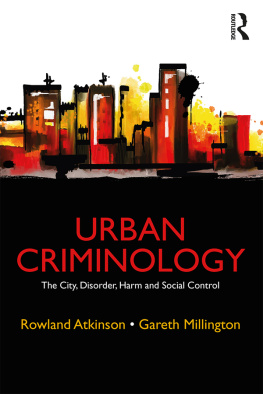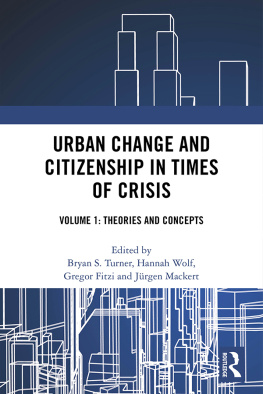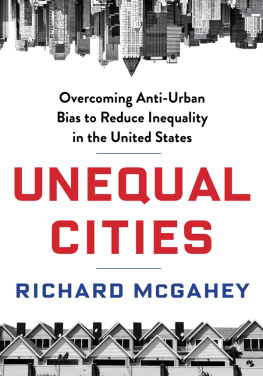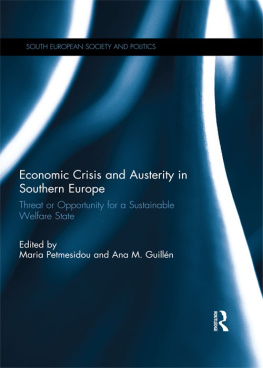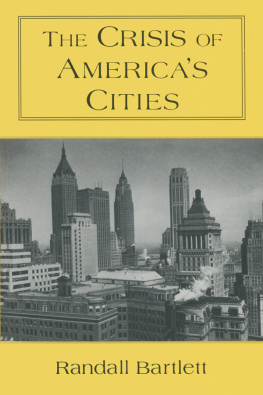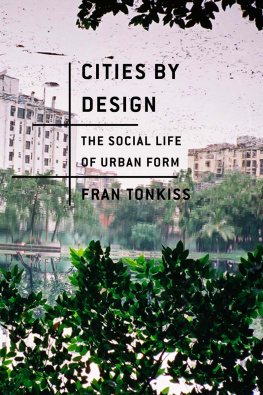
Unequal Cities
This seminal edited collection examines the impact of austerity and economic crisis on European cities. Whilst on the one hand the struggle for competitiveness has induced many European cities to invest in economic performance and attractiveness, on the other, national expenditure cuts and dominant neo-liberal paradigms have led many to retrench public intervention aimed at preserving social protection and inclusion. The impact of these transformations on social and spatial inequalities whether occupational structures, housing solutions or working conditions as well as on urban policy addressing these issues is traced in this exemplary piece of comparative analysis grounded in original research.
Unequal Cities links existing theories and debates with newer discussions on the crisis to develop a typology of possible orientations of local government towards economic development and social cohesion. In the process, it describes the challenges and tensions facing six large European cities, representative of a variety of welfare regimes in Western Europe: Barcelona, Copenhagen, Lyon, Manchester, Milan and Munich. It seeks to answer such key questions as:
What social groups are most affected by recent urban transformations and what are the social and spatial impacts?
What are the main institutional factors influencing how cities have dealt with the challenges facing them?
How have local political agendas articulated the issues and what influence is still exerted by national policy?
Grounded in an original urban policy analysis of the post-industrial city in Europe, the book will appeal to a wide range of social science researchers, PhD and graduate students in urban studies, social policy, sociology, human geography, European studies and business studies, both in Europe and internationally.
Roberta Cucca is Marie Curie Fellow at the Department of Sociology, University of Vienna. Her main research interests are oriented to: economic competitiveness and social inequalities in contemporary cities; deliberative and participatory democracy; environmental crisis and social vulnerability.
Costanzo Ranci is Full Professor in Economic Sociology at the Polytechnic of Milan, Italy. He is Director of Social Policy Research Unit (LPS) and of the International PhD programme in Urban Studies at the Polytechnic of Milan. He has published extensively on social inequality and welfare policy.
Unequal Cities
The challenge of post-industrial transition in times of austerity
Roberta Cucca and Costanzo Ranci
First published 2017
by Routledge
2 Park Square, Milton Park, Abingdon, Oxon OX14 4RN
and by Routledge
711 Third Avenue, New York, NY 10017
Routledge is an imprint of the Taylor & Francis Group, an informa business
2017 Roberta Cucca and Costanzo Ranci
The right of the editors to be identified as the authors of the editorial matter, and of the authors for their individual chapters, has been asserted in accordance with sections 77 and 78 of the Copyright, Designs and Patents Act 1988.
All rights reserved. No part of this book may be reprinted or reproduced or utilized in any form or by any electronic, mechanical, or other means, now known or hereafter invented, including photocopying and recording, or in any information storage or retrieval system, without permission in writing from the publishers.
Trademark notice: Product or corporate names may be trademarks or registered trademarks, and are used only for identification and explanation without intent to infringe.
British Library Cataloguing-in-Publication Data
A catalogue record for this book is available from the British Library
Library of Congress Cataloging in Publication Data
Names: Cucca, Roberta, editor. | Ranci, Costanzo, editor.
Title: Unequal cities : the challenge of post-industrial transition in times of austerity / edited by Roberta Cucca and Costanzo Ranci.
Description: Abingdon, Oxon ; New York, NY : Routledge, 2016.
Identifiers: LCCN 2016022144 | ISBN 9781138919464 (hardback) | ISBN 9781315687865 (ebook)
Subjects: LCSH: Cities and townsEurope. | Sociology, UrbanEurope. | EqualityEurope. | EuropeEconomic conditionsRegional disparities. | EuropeSocial conditions.
Classification: LCC HT131 .U535 2016 | DDC 307.76094dc23
LC record available at https://lccn.loc.gov/2016022144
ISBN: 978-1-138-91946-4 (hbk)
ISBN: 978-1-315-68786-5 (ebk)
Typeset in Times New Roman
by Wearset Ltd, Boldon, Tyne and Wear
Contents
ROBERTA CUCCA AND COSTANZO RANCI
PART I
Urban trends and social tensions: a comparative view
ROBERTA CUCCA AND LARA MAESTRIPIERI
AGOSTINO PETRILLO
YVONNE FRANZ AND ROSSANA TORRI
NATHALIE KAKPO AND ROBERTA CUCCA
PART II
Urban policies for affordable housing and good quality employment: six case studies
ANA BELN CANO HILA, MARC PRADEL MIQUEL AND MARISOL GARCIA
HANS THOR ANDERSEN
DEBORAH GALIMBERTI, RMI DORMOIS AND GILLES PINSON
NICOLA HEADLAM
ROSSANA TORRI
ALAIN THIERSTEIN, IRINA AUERNHAMMER AND FABIAN WENNER
PART III
Final considerations
COSTANZO RANCI
COSTANZO RANCI AND ROBERTA CUCCA
Hans Thor Andersen is Director of Research at the Danish Building Research Institute (SBi), Aalborg University. His main areas of interest are social geography, housing and urban politics. His recent work includes socio-spatial changes as preconditions and outcomes of political-economic transformations.
Irina Auernhammer, Architect and Urban Planner ByAK, graduated in architecture from the University of Stuttgart, Faculty of Architecture and Urban Planning, and co-founded the Munich-based studio Auernhammer Wohlrab Architektur. After working as Chair of Urban Development at the Munich University of Technology, she teaches as Academic Associate at the Institute for Lightweight Structures and Conceptual Design (ILEK), Professor Werner Sobek, at the University of Stuttgart.
Ana Beln Cano Hila is Adjunct Lecturer at University of Barcelona and member of the research group CRIT UB. She holds a PhD in Sociology, University of Barcelona. She has collaborated in the management of regional and national projects of research on social innovation and governance; social cohesion, culture and participation; immigration and education.
Rmi Dormois has a hybrid profile of Practitioner and Researcher. He works for the French housing ministry in county level administration as Head of the Housing Department. With a PhD in political science, he is Fellow Researcher in the UMR 5600 EVS Environment, City and Society (Lyon University). His research topics deal with urban governance and regeneration policies implemented in cities facing demographic and economic crisis.
Yvonne Franz is an urban geographer and Postdoctoral Researcher at the Institute for Urban and Regional Research at the Austrian Academy of Sciences. She has been working on two international JPI Urban Europe projects dealing with gentrification from a relational approach and super-diversity at neighbourhood level. She is also co-organizing the Vienna Summer School in Urban Studies and teaching at the University of Vienna.


